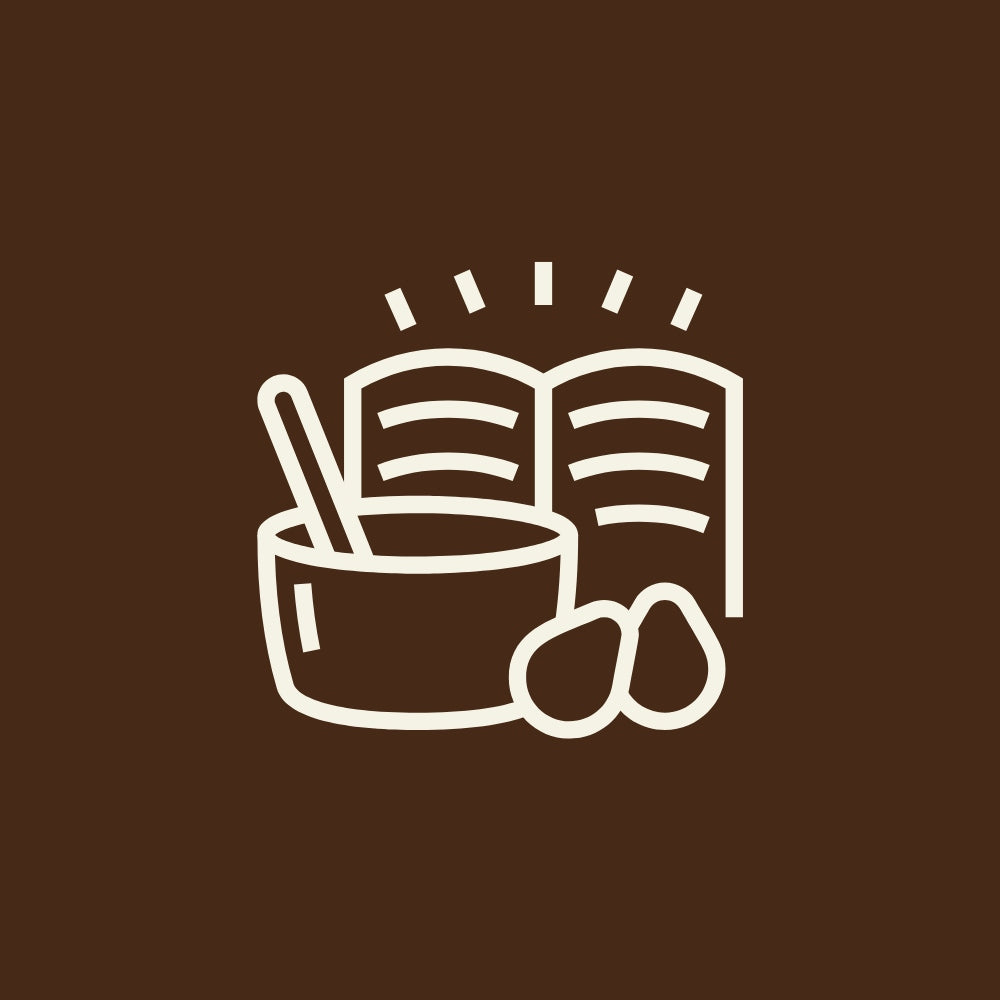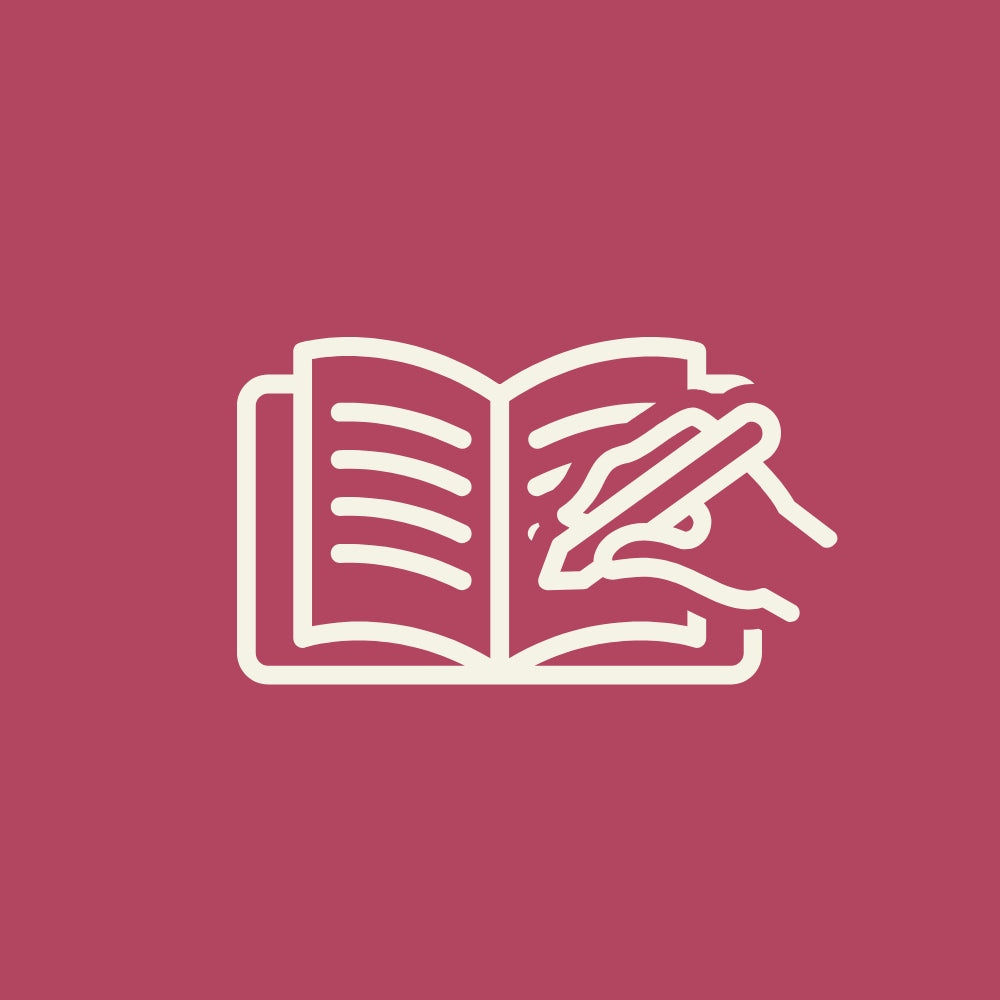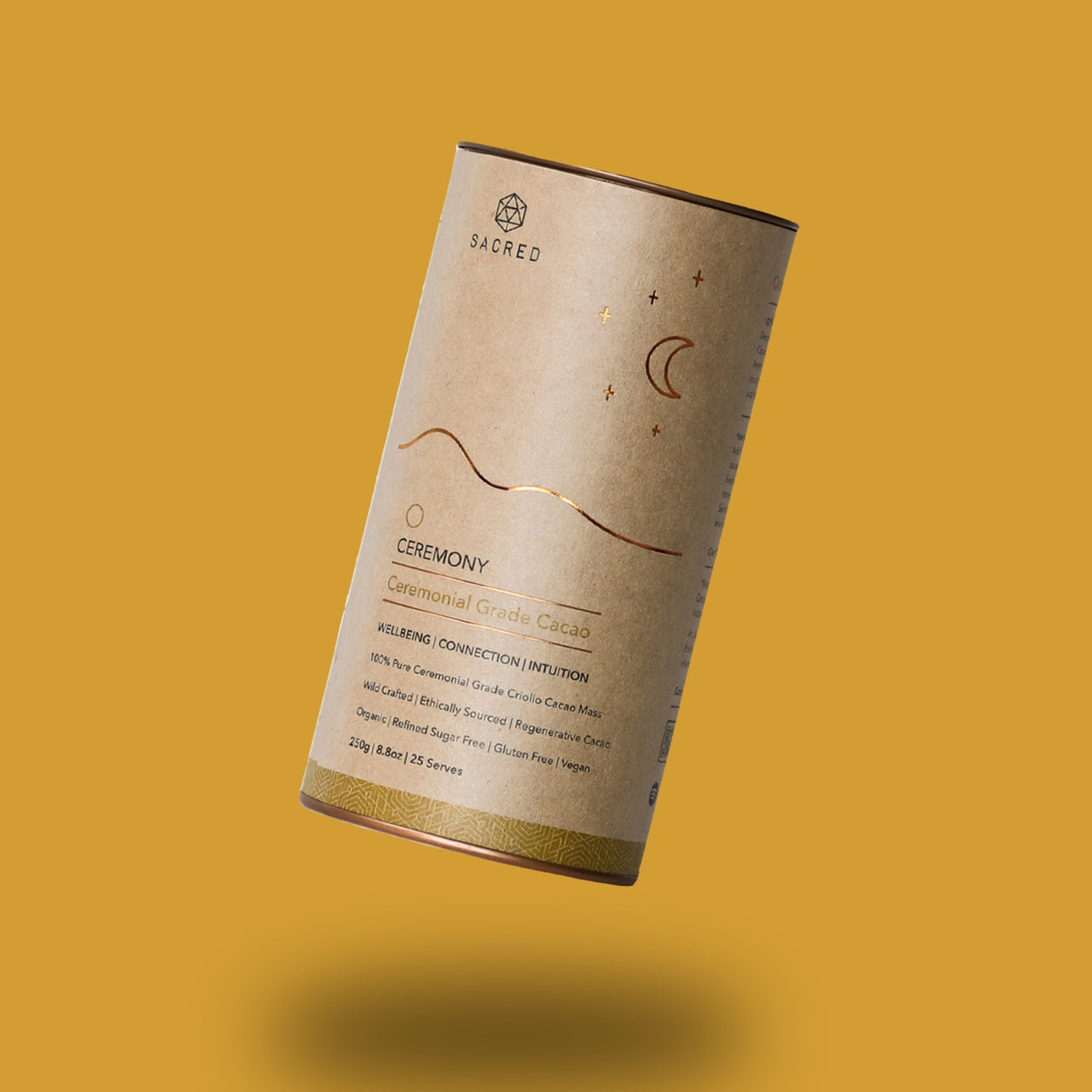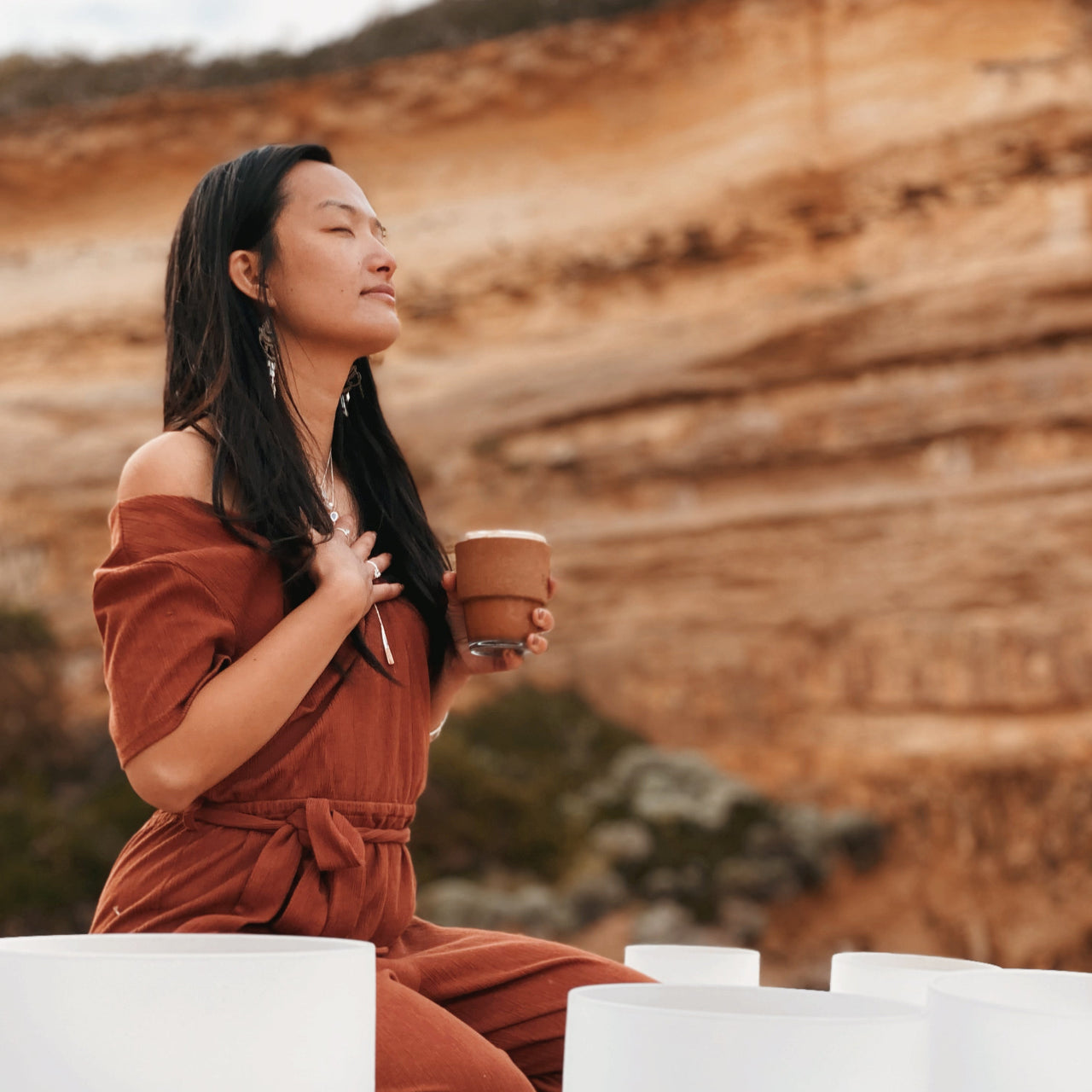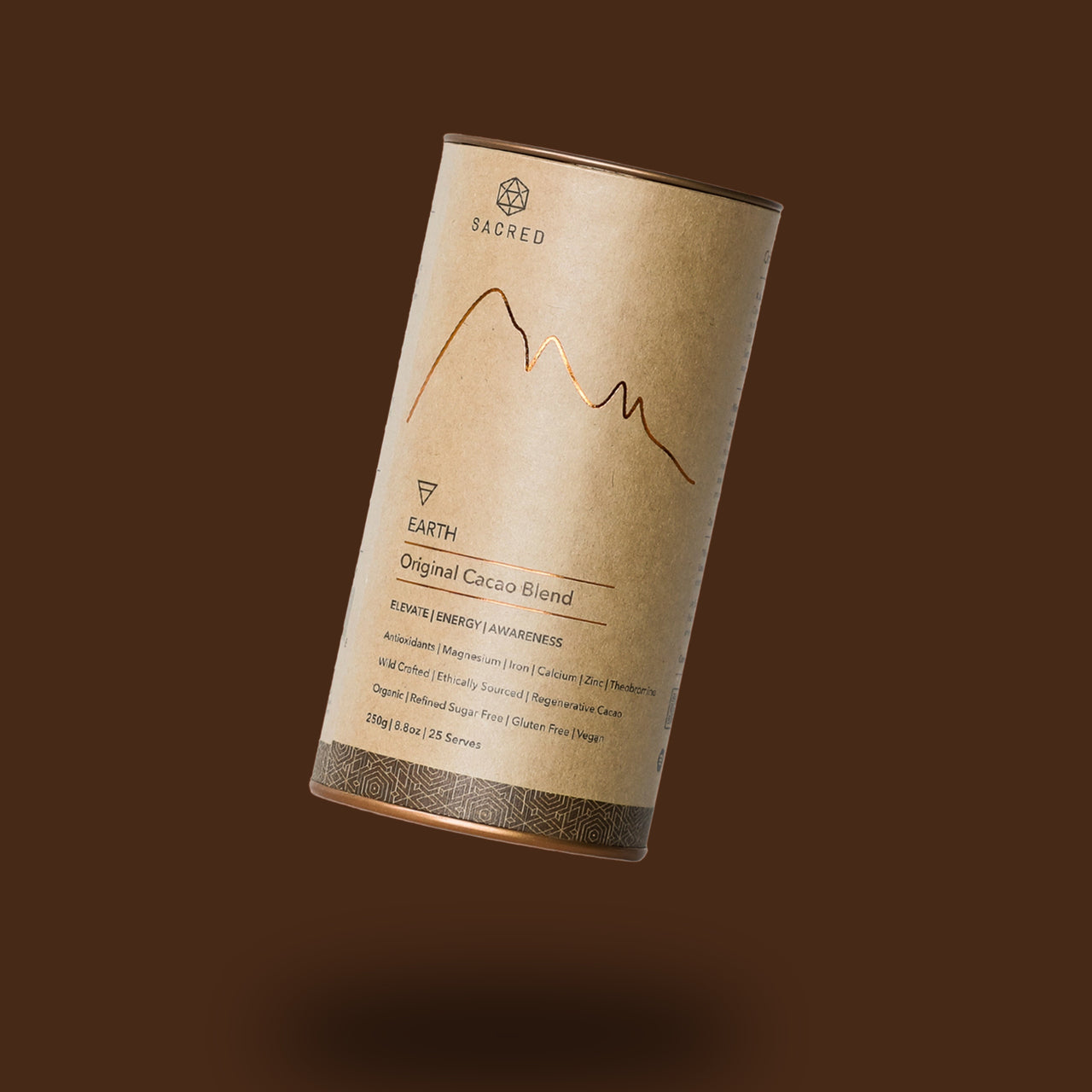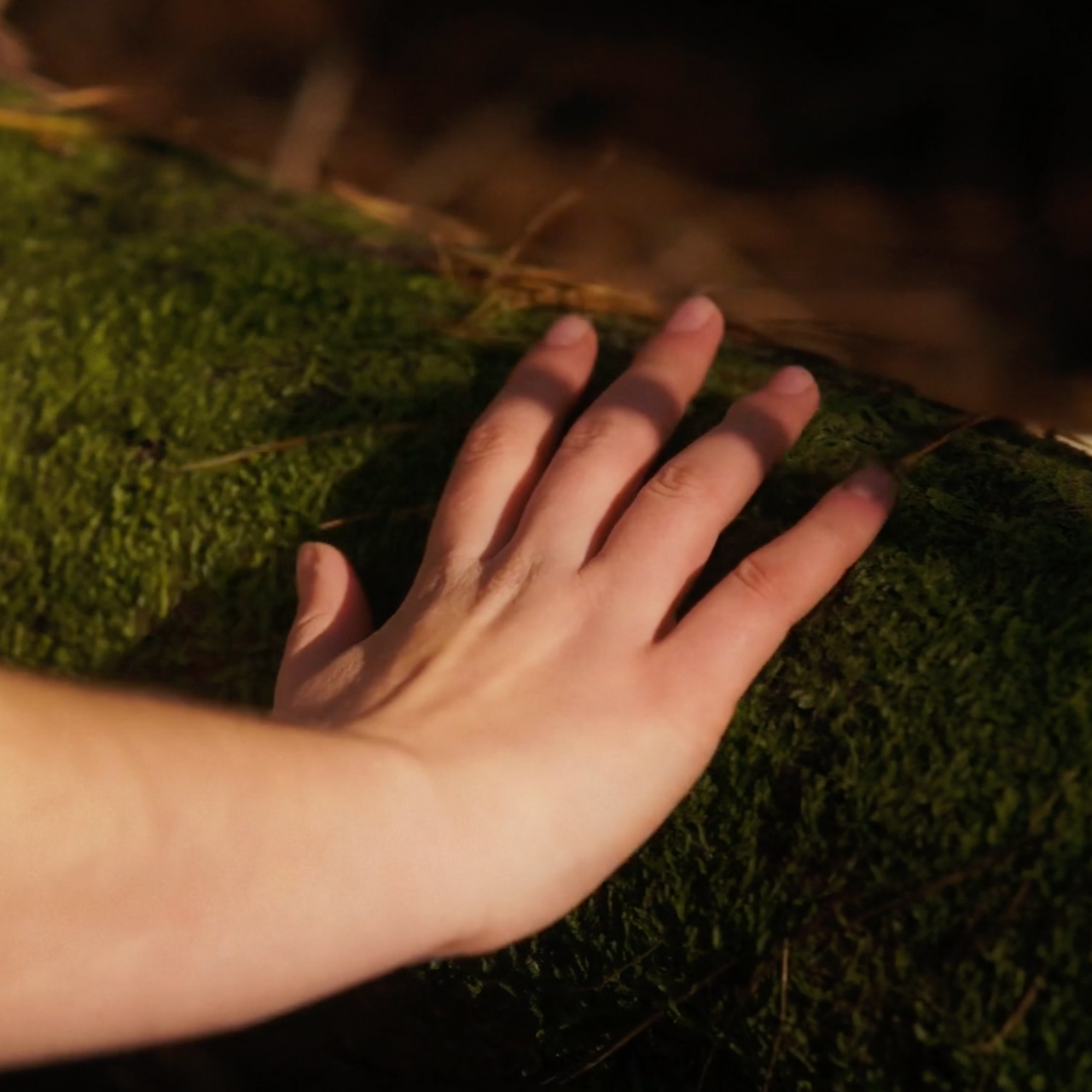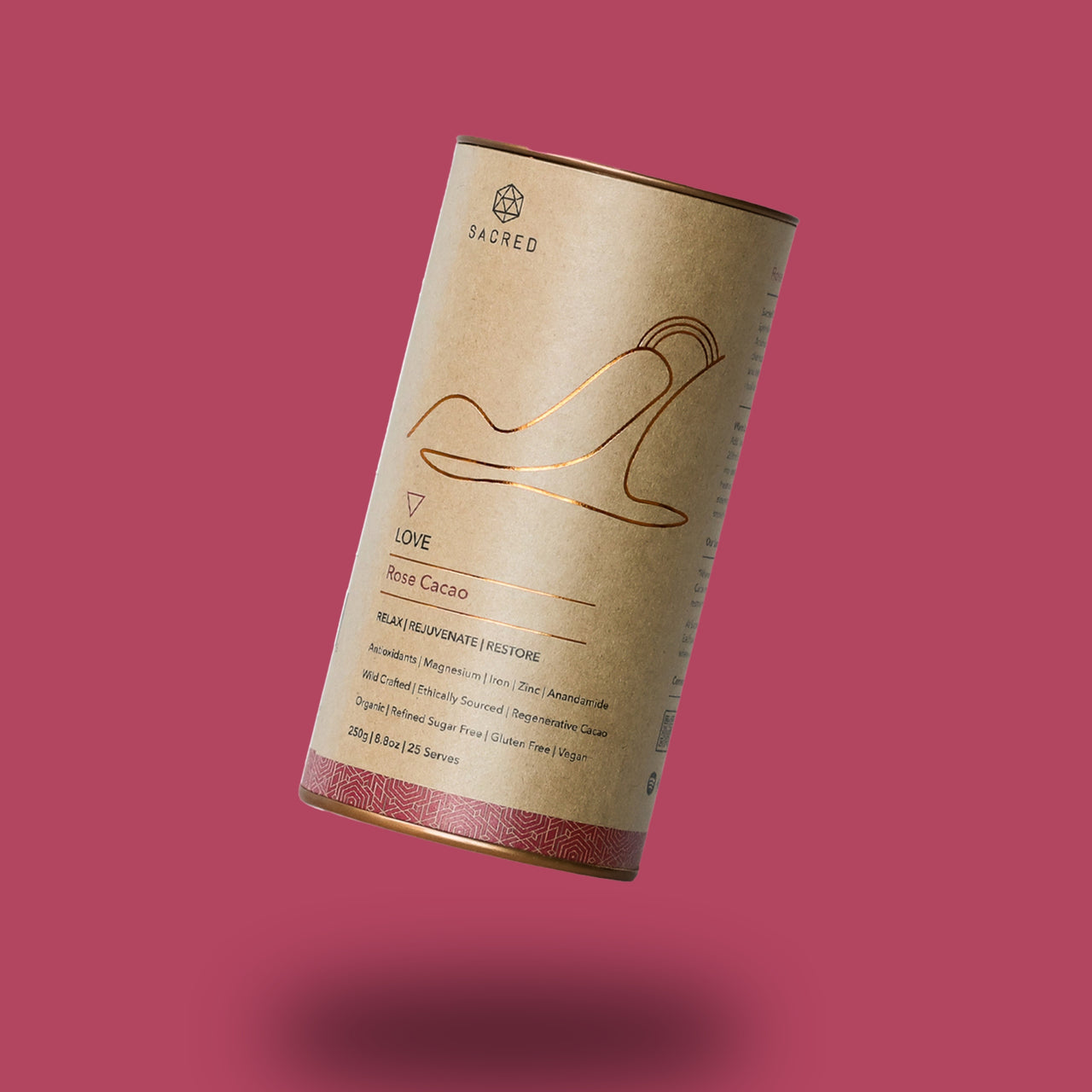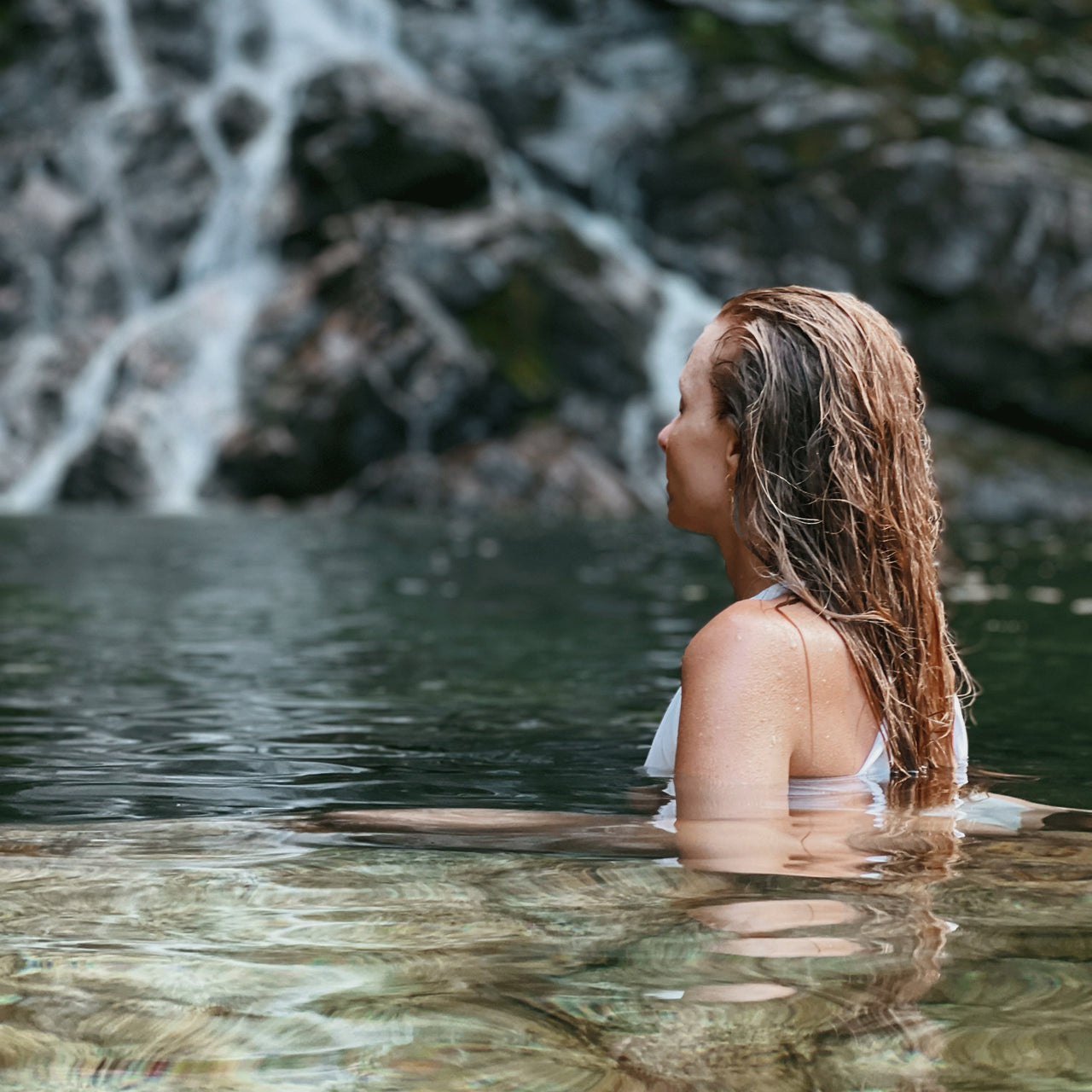
Allow us to introduce Tess Martin, the incredibly compassionate woman whose journey with Cacao, the sacred medicine plant of the jungle, has created tidal waves of transformation on a personal and global scale. She is the founder of Cacao Mama International and the Creator of the Cacao Mama Experience whose vision is redefining limits with the grace and wisdom bestowed on us by love.
Tess works intimately with the Spirit of Cacao, her guide through the deep work of restoring balance to the hearts of the world.
The first time she heard the call of Cacao, Tess was on retreat at the Pyramids of Chi in Ubud, Bali. This sacred site was where Tess received an unexpected invitation.
“The whole time this voice kept repeating, ‘This is what you're here to work with.’” Tess describes her first meeting with Cacao. “‘You're here to open the hearts of the world once more.’”
Tess spent the next two years in ceremony with Cacao, sitting every day in contemplation of matters of the heart.
“I would fast all morning.” Tess explains. “It was effortless every single day. I didn't even have to think about it. Some days I felt like dancing, other days it was pure stillness and silence. Cacao really held me through a lot of foundational changes that were occurring in my life at the time.”
The unfolding journey led Tess on a round-the-world trip with her four children, eventually circling back to Bali where they lived for many months. It was here where she began facilitating cacao ceremonies, with the support and encouragement of her friends.
“By that point I had been travelling with the kids for over a year.” Tess explains. “I think they were really encouraging me to have something for myself.”
Her first event was at Karma House in the woods in Ubud. Tess recalls the feeling.
“18 people showed up that night.” She remembers. “By the end people were crying, saying they didn’t know their heart could feel like this. It was beautiful to witness and a moment where I knew something was really special was happening. It's been an incredible journey from there.”

I ask Tess how Cacao Mama International was born.
“It really had the energy of being its own entity independent of me.” She ruminates. “A lot of it came from a process of letting go of my expectations around motherhood.”
Tess decided to redesign the rules and live life according to her own values.
“We have this place of unity inside us. The little home where our deepest truth lies. Before I found cacao, I was operating from what my external world was telling me about how I had to show up and who I was for everybody else when it’s the magic we create in our own lives that matters most.”
In a natural process of expansion, Tess began to facilitate more and more cacao ceremonies, travelling between Bali and Australia. The very week the global pandemic stopped all travel in motion, Tess was on a plane receiving intuitive guidance on how to grow the movement further and offer an even deeper experience in cacao medicine.
“I didn't understand the depth of what this meant at the time.” Tess tells me. “But a voice was coming through, saying the world is going to need this more than they ever have before. I was told, ‘You need to do a facilitation course. You need to teach people how to do this.’ Cacao Mama went online and became internationally accessible.”
Tess and I venture into the realm of integrity. How do we ensure the sacred medicine of cacao is being handled with respect at all stages of the journey?
“This is the reason I wanted to start the facilitation course.” Tess explains. “At that time the popularity and accessibility of ceremonial cacao was about to explode.”
A problem, however, was arising from a misuse of the medicine.
“I was observing people who were not working respectfully with it.” Tess says. “Using ceremonial cacao as a pre-workout and things like that. The complete lack of reverence and respect for this incredibly powerful and potent medicine really affected me. I felt the responsibility to educate. I even started speaking to cacao companies, asking about the connection owners and founders actually have to their product. I wanted to speak to this, to be a bridge and play a role in bringing awareness to it.”
I ask Tess to shed more light on the dark underworld of the cacao industry.
“For two years I’ve searched for companies who have integrity around this.” Tess tells me. “I’ve had countless phone calls and meetings. I need my facilitators to know which companies to trust. The truth is that the cacao industry is one of the biggest contributors to child trafficking, slavery, gang activity and murder.”
Tess reveals the backlash she’s received by speaking out about what we believe to be absolutely non-negotiable when it comes to sourcing cacao.
“I will stand in the fire and speak about it.” She says. “It’s so important and I’m here to be a bridge, to connect people with cacao so much more deeply and bring that reverence back. When I came across Dan and Sacred I felt, ‘I’ve waited two years to find this company.’ We’re passionate about the same things.
“We have an enormous responsibility to understand what we're doing, where our cacao is coming from and whose hands it's touched. To ensure no blood has been spilled in order for it to get to us. If we're not taking responsibility for it as the consumer we are only going to perpetuate every single foundational issue that we have around the world that is keeping so many people disempowered.”
Tess tells me the extent of the research she’s done into the mass production of ceremonial cacao. The truth is confronting.

“A handful of companies control 95% of the world's cacao market.” She tells me. “They hold an enormous monopoly, controlling the price on a global scale which is constantly fluctuating. The farmer doesn't have a choice how much he sells his cacao for. There are entire regions of farmers who don’t earn enough money to even continue producing cacao. They take out loans from the companies just to plant a new crop in a vicious cycle that keeps them stuck.”
The mass production of cacao means acres of rainforest are cleared to plant mono crop farms owned by companies whose values are compromised. Without respect for the land, farmers or the plant medicine, cacao is harvested and transported to centralised co-operatives.
“The cacao from all the different regions gets thrown into one huge room.” Tess laments. “It’s just mixed together and can be purchased by anybody.”
What this means is that any brand can purchase bulk quantities of cacao for a low price, instead of working with communities of farmers directly.
“Anybody can access this wholesale ceremonial cacao, print out a bag and stick a label on it. People need to pay attention to what they’re purchasing. If we follow the money, it all leads back to this handful of companies who hold a monopoly on the industry. They're able to hide it because they're putting money in the right pockets.
“I've had multiple big cries about this.” Tess admits. “The Ivory Coast in Africa produces 44% of the world’s cacao and the farmers get paid less than $1 a day. It’s naive to think this activity doesn’t happen in South America as well. I have to have a voice in this. I will take the risk because I can’t say nothing at all.”
Tess explains that discernment is in asking the right questions.
“Look for chocolate companies who talk about the whole Bean to Bar experience. It means they’re sourcing, cleaning, roasting, winnowing and grinding the cacao beans themselves. The term was established to distinguish between small batch artisanal chocolate makers and those using mass produced cacao.
“When most chocolate companies make their products, they usually separate the cacao butter from the powder and reformulate it to suit their flavour profiles. The bean to bar experience uses the entire bean as it is without manipulating the process. They don’t separate or add anything.
“Generally a Bean to Bar company will only produce small amounts of chocolate as the process is laborious. It will be more expensive however their website will have information about their process, where their beans are from and how much they produce each month. That’s the thing to look for. If you see a company doing the whole Bean to Bar, try it. Change has to start from the bottom up. It starts with us as the consumers.”
We talk about how we can make more sustainable choices.
“The biggest challenge we face is the power of psychological marketing and deprogramming ourselves from those systems, because that's where the power lies for a majority of the population. But purchasing habits are exactly that - habits.
“It takes a whole new way of thinking and shift in perspective to create the change that’s needed. Most people are either not aware of the fact they're doing it or else life has become so full of distraction and dependent upon hormonal hits and instant gratification that people actually don't have the space within themselves to put any effort towards change.
“We need to support small, localised, independent and artisanal brands as much as we can. A lot of these small companies are very active in creating grassroots initiative because they uphold a different level and standard for what they pay their farmers. The impact of the money they put back into supporting the village is huge. It changes the future of the entire community.”
Small changes in consumer habits make a huge difference in tipping the scales in favour of a fair and balanced exchange.
“These companies are not in competition with each other either.” Tess explains. “A lot of them actually become friends, working together to grow their businesses because they hold a bigger vision.”
I ask Tess about her vision and if she knows how the collaboration between Sacred and Cacao Mama International intends to unfold - some businesses are indeed like entities, with hearts of their own!
“We’re holding a vision of continuing to open people up to cacao.” Tess tells me. “We want to have Cacao celebrations in every major city in Australia, all happening at the same time. Or even globally! Cacao and her spirit is that of her own, but she actually lives within all of us. She is the gateway to people reconnecting to their natural rhythm and the cycles of nature that we are seamlessly meant to be going with and flowing with in life.”
We imagine the energy of these collective events and how much positive change can be generated from people gathering together with a shared vision and aligned intention.
“It will become a globally recognised movement.” Tess shares excitedly. “Dan was so excited when he found out I have 80 active facilitators across the globe. Each and every one of us has something so unique about us, something that doesn't exist in anyone else. It’s about finding the key that is going to unlock that. Every facilitator I’ve trained brings something so different and it is all equally powerful. When we learn to celebrate our differences, as in nature, we understand the paradox of how those differences unite us.

Finally I ask Tess the most notable lesson Cacao has taught her. She laughs as she attempts to put into words the ineffable.
“I feel like it's been a return and a remembrance of my true power as a woman.” She says after some consideration. “The power to deeply integrate and embody being in harmony with natural rhythms and cycles. It’s allowing room for the creative mess, that’s what I call it, because I feel like there's so much power in being able to open in surrender to the messiness and allowing it to come to its own completion. Our capacity in the feminine is to fully embrace the dynamics and diversity of the whole human experience. Instead of trying to fix or control it, we have this beautiful capacity to alchemize and transmute and work with what's happening rather than against it. I would say that’s what’s changed in my life.
“When I contemplate what is sacred, to me, sacredness is humility. It's a deep humbling of all that we are and recognising how powerful that humility is. When we surrender ourselves to it, it allows life to gift us what is actually for us. From this place of humility, we're actually able to access so much innate organic and natural wisdom that we would otherwise miss. Yes, that's what I feel sacred is to me.”
Connect with Tess
Instagram | www.instagram.com/thisistessmartin
Connect with Cacao Mama
Instagram | www.instagram.com/cacaomamainternational
Written by Laura
Instagram | www.instagram.com/artful_listening







